To compensate Pakistan for the losses caused by the flood last year, the European Council offered it tariff concession on 75 items. India had opposed it on the ground that it would hurt the interest of our exporters. The Prime Minister’s decision to reverse India’s position not only comes as a surprise but also shows he is soft on Pakistan
According to a recent newspaper report, the Prime Minister has “ordered officials to withdraw India’s official opposition at the World Trade Organisation to a concessional trade package offered by the European Union to Pakistan.”
It may be recalled that in September 2010, the European Council approved tariff concessions on 75 items with a view to compensate Pakistan for the losses caused by the floods. The total worth of the items exported under these tariff lines including mainly textile products is estimated at $1.03 billion and the average tariff on these items is 8.86 per cent. Under the EU proposal, the tariff would be reduced to zero for a period of three years.
India has so far been opposing this move on the grounds that if the EU wished to provide aid to Pakistan it was free to do so but it should not do so by way of trade or tariff concessions. This would be a dangerous precedent undermining the principles of free trade. Moreover, it did not constitute aid but was simply in the nature of trade diversion which would hurt the interests of other exporters.
Speaking more bluntly Mr DK Nair, Secretary General, Confederation of Indian Textile Industry, has argued that “By adopting the ‘trade for aid’ approach for assistance, EU has effectively transferred the burden of such assistance to the other countries like India, exporting these products to the European markets. Instead of absorbing additional imports from Pakistan, the zero duty access will only substitute imports from other countries like India with imports from Pakistan.”
The Prime Minister’s reversal of the Indian position on this issue is yet another indicator of how soft he is on Pakistan despite the latter’s continued pursuit of policies blatantly inimical towards India such as the export of terror to India, the printing of fake Indian currency, the holding of joint exercises with China on the Rajasthan border, etc. Other instances of the Prime Minister’s unnecessarily accommodative stance towards Pakistan were his dalliance with General Pervez Musharraf for a final settlement of Jammu & Kashmir on lines in clear violation of Parliament’s joint resolution of February 1994 on this issue, the acceptance of a joint anti-terror mechanism, the resumption of a comprehensive dialogue with Pakistan despite the fact that it has not brought to book the perpetrators of the 26/11 Mumbai attacks, etc.
In the instant case the Prime Minister’s going soft on Pakistan will impinge adversely on our textile exports, our textile manufacturers, and those employed in the textile sector.
A case could be made for making such a sacrifice if there was a reasonable chance of Pakistan accepting our friendship. Regrettably, the innumerable concessions, as briefly listed below, made by India in an effort to befriend Pakistan have not been reciprocated and, in fact, only served to encourage the latter’s intransigence towards us.
Some of these may be enumerated as follows:
- Payment of Rs 75 crores to Pakistan on account of division of assets of undivided; Rs 20 crores were paid in August 1947 and balance of Rs 55 crores in January 1948 even as Pakistan was attacking India;
- Non pursuit of its claims vis-a-vis Pakistan for non payment of the latter’s partition debt of Rs 300 crores;
- Conclusion in 1960 of the Indus Waters Treaty under which India, though it had 40 per cent of the catchment area, agreed to an allocation of only 20 per cent of the flows of the Indus Waters. In addition, it agreed to pay Pakistan over 62 million pounds sterling for building replacement canals, reservoirs, etc.
- Following Pakistan’s defeat in 1971 India, rather than imposing a settlement upon it, chose to negotiate an agreement with it at Simla in 1972 for across the board normalisation of relations. In the process India returned the 5386 square miles of Pakistani territory captured by it in Sind (5000 square miles) and Punjab (386 square miles) without exacting any quid pro quo;
- India obtained “the concurrence of Bangladesh” for the return of the nearly 92000 Pakistani prisoners of war held by it under the joint India-Bangladesh Command without asking for anything in return;
- India facilitated Pakistan’s entry into NAM in 1979 and re-entry into the Commonwealth in 1989;
- India has for years been unilaterally according Pakistan most favoured nation treatment.
It is conventional wisdom that those who do heed the lessons of history are condemned to relive them. Pakistan has repeatedly spurned India’s hand of friendship. Accordingly, we should desist from making any concessions to Pakistan particularly when these impinge adversely on the livelihood and well being of our people. There is certainly no call for our leaders to make our textile industry a sacrificial lamb in their agenda of appeasing Pakistan.
--------------------------------------------------------
Published in The Pioneer: 24th August, 2011

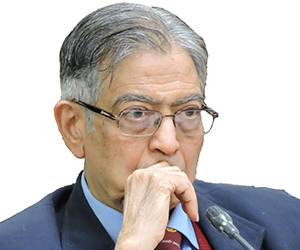

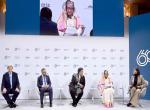
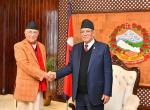
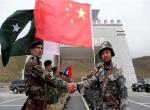

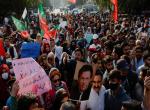
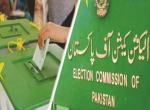
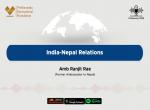
Post new comment